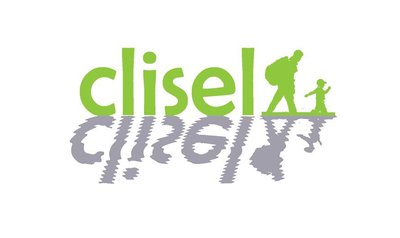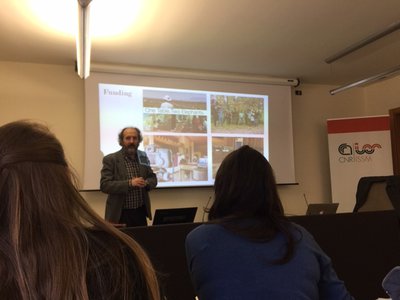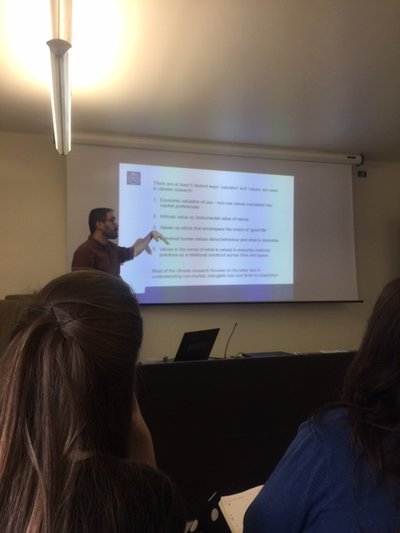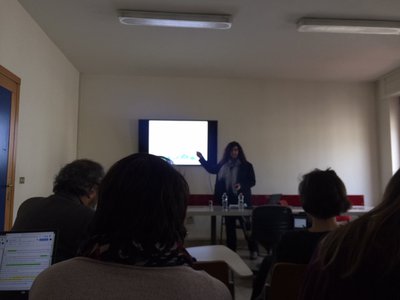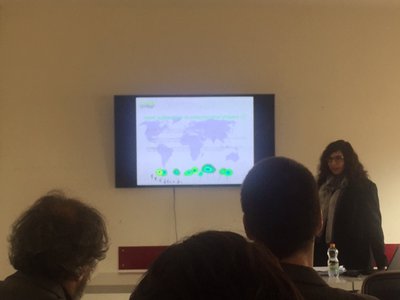19 Dec 2018
Recap: Environmental Humanities Training School 2018
The CLISEL training school was an important contribution in the current debate on (multi-level) migration governance issues and brought together policy-makers, members of academia and media operators for a fruitful dialogue on these topical questions.
The Environmental Humanities Training School 2018 on "Loss, Damage and Mobility in the context of Climate Change" took place in Naples (Italy) from 12-14 December. It was co-organised by Prof. Elisa Fornalé from the World Trade Institute, KTH (Royal Institute of Technology) Environmental Humanities Laboratory (Sweden), Istituto di Studi sulle Società del Mediterraneo (CNR-ISSM) (Italy), and Dipartimento di Architettura, Università Federico II (Italy).
The Training School’s aim was to enhance the skills of a new generation of young researchers on loss and damage related to environmentally induced migration, while at the same time expanding the contributions to the CLISEL project’s online geo-archive. Each participant produced a brief historical case study on loss and damage and/or the climate–migration nexus. During the three-day School, Aylin Yildiz (WTI) presented a case study on the “Vunidogoloa village: The first climate-induced community relocation in Fiji” and Federica Cristani (WTI) held a lecture on “The role of local authorities in the multi-level (environmentally induced) migration governance”.
As a parallel and integrated event of the Training School, Prof. Elisa Fornalè also organised a dedicated CLISEL training module for local authorities on the topic of “Migration governance issues: Local authorities at the front line in times of climate change and security”. The exclusive module took place in the prestigious venue of Sala Pignatiello, Palazzo San Giacomo, Piazza del Municipio (Naples). Local authorities from Campania participated in the training, which was introduced by the Municipal Commissioner for citizenship rights and social cohesion with delegation to migratory issues (Assessore ai diritti di cittadinanza e coesione sociale) of Naples, Dr. Laura Marmorale, who gave an illuminating and comprehensive insight into the current social, legal and political situation in the territory of Naples. The two-day training was enriched with the participation of high-level speakers from the Universities of Perugia, Naples "L'Orientale”, Turin, the Italian Bar Association for Migration Studies and from the Association Carta di Roma, as well as the participation of representatives of local authorities and civil society from the Municipality of Naples and Campania. During the event, Prof. Elisa Fornalè illustrated in particular the CLISEL project’s activities and the CLISEL Toolbox, including all the instruments that are being prepared especially for policy-makers, like the Travel App, the Interactive Maps, the Institutional Index, the thematic glossaries and the Guidelines for an European External Policy on labour mobility and climate change, receiving enthusiastic feedback from the participants.
Learn more about the CLISEL project via the link below.
Further info
CLISEL webpage
Programme of the Local Authorities Training Module
CLISEL Newsletter, November 2018


